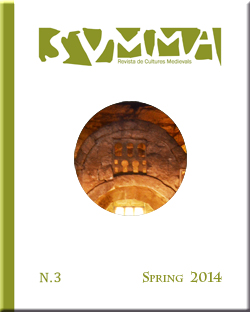The Intellectual Virtues (Nicomachean Ethics, Book VI) in Three Works of Popularization of Aristotelian Thought
DOI:
https://doi.org/10.1344/Svmma2014.3.4Keywords:
Aristotle, ethics, intellectual virtues, popularizationAbstract
This paper aims to analyse how the Aristotelian theory of the intellectual virtues (Nicomachean Ethics, Book VI) is formulated in a corpus of three compendia of Aristotle’s Ethics and two anthologies of moral philosophy which circulated in Castile from the 13th to the 15th century. These texts belong to the multifaceted medieval literature of popularization, which hoped to offer students of the Faculty of Arts, and a larger circle of noblemen eager for knowledge, access to the doctrines of the authors of classical Antiquity, especially to those of Aristotle, “The Philosopher”, the first auctoritas studied in medieval universities. The object of my analysis will therefore serve as an illustration of a larger phenomenon: the transmission of Aristotelian doctrines through works of popularization, which constitutes one of the most interesting modalities of reception of the corpus aristotelicum in Europe from the 13th century onwards.
Downloads
Published
Issue
Section
License
The authors retain rights and grant the journal right of first publication of the work.
The author (s) to retain the publishing rights without restrictions, only recognition of first publication.
SVMMA Revista de Cultures Medievals is licensed under a Creative Commons Attribution-NonCommercial-ShareAlike 3.0 Spain License















